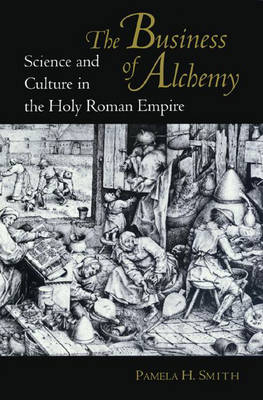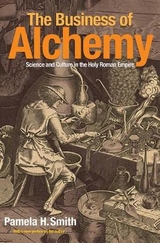
The Business of Alchemy
Science and Culture in the Holy Roman Empire
Seiten
1994
Princeton University Press (Verlag)
978-0-691-05691-3 (ISBN)
Princeton University Press (Verlag)
978-0-691-05691-3 (ISBN)
- Titel erscheint in neuer Auflage
- Artikel merken
Zu diesem Artikel existiert eine Nachauflage
This study explores the relationships among alchemy, the Court and commerce in order to illuminate the cultural history of the Holy Roman Empire in the 16th and 17th centuries. It shows how concerns over religious salvation were transformed into an emphasis on material gains.
This study explores the relationships among alchemy, the Court and commerce in order to illuminate the cultural history of the Holy Roman Empire in the 16th and 17th centuries. In showing how an overriding concern with religious salvation was transformed into a concentration on material increase and economic policies, it depicts the rise of modern science and early capitalism. In pursuing this narrative, the work focuses on an intellectual of the second rank whose career and ideas typified those of his generation: Johann Joachim Becher (1635-1682). It follows Becher from university to Court, detailing his projects from New World colonies to an old-world Pansophic Panopticon, and his ideas from alchemy to economics. Agrarian society regarded merchants with suspicion as the non-productive exploiters of others' labour; however, territorial princes turned to commerce for revenue as the cost of maintaining the state increased. Placing Becher's career in its social and intellectual context, the study shows how he attempted to help his patrons assimilate commercial values into Court culture and to understand the production of surplus capital as natural and legitimate.
This study explores the relationships among alchemy, the Court and commerce in order to illuminate the cultural history of the Holy Roman Empire in the 16th and 17th centuries. In showing how an overriding concern with religious salvation was transformed into a concentration on material increase and economic policies, it depicts the rise of modern science and early capitalism. In pursuing this narrative, the work focuses on an intellectual of the second rank whose career and ideas typified those of his generation: Johann Joachim Becher (1635-1682). It follows Becher from university to Court, detailing his projects from New World colonies to an old-world Pansophic Panopticon, and his ideas from alchemy to economics. Agrarian society regarded merchants with suspicion as the non-productive exploiters of others' labour; however, territorial princes turned to commerce for revenue as the cost of maintaining the state increased. Placing Becher's career in its social and intellectual context, the study shows how he attempted to help his patrons assimilate commercial values into Court culture and to understand the production of surplus capital as natural and legitimate.
Pamela H. Smith is Assistant Professor of History at Pomona College.
| Zusatzinfo | 29 halftones |
|---|---|
| Verlagsort | New Jersey |
| Sprache | englisch |
| Maße | 197 x 254 mm |
| Gewicht | 624 g |
| Themenwelt | Geschichte ► Teilgebiete der Geschichte ► Kulturgeschichte |
| Geisteswissenschaften ► Religion / Theologie ► Weitere Religionen | |
| Naturwissenschaften | |
| Sozialwissenschaften ► Soziologie | |
| ISBN-10 | 0-691-05691-9 / 0691056919 |
| ISBN-13 | 978-0-691-05691-3 / 9780691056913 |
| Zustand | Neuware |
| Haben Sie eine Frage zum Produkt? |
Mehr entdecken
aus dem Bereich
aus dem Bereich
der stille Abschied vom bäuerlichen Leben in Deutschland
Buch | Hardcover (2023)
C.H.Beck (Verlag)
23,00 €
vom Mittelalter bis zur Gegenwart
Buch | Softcover (2024)
C.H.Beck (Verlag)
12,00 €
eine Geschichte der Welt in 99 Obsessionen
Buch | Hardcover (2023)
Klett-Cotta (Verlag)
22,00 €



